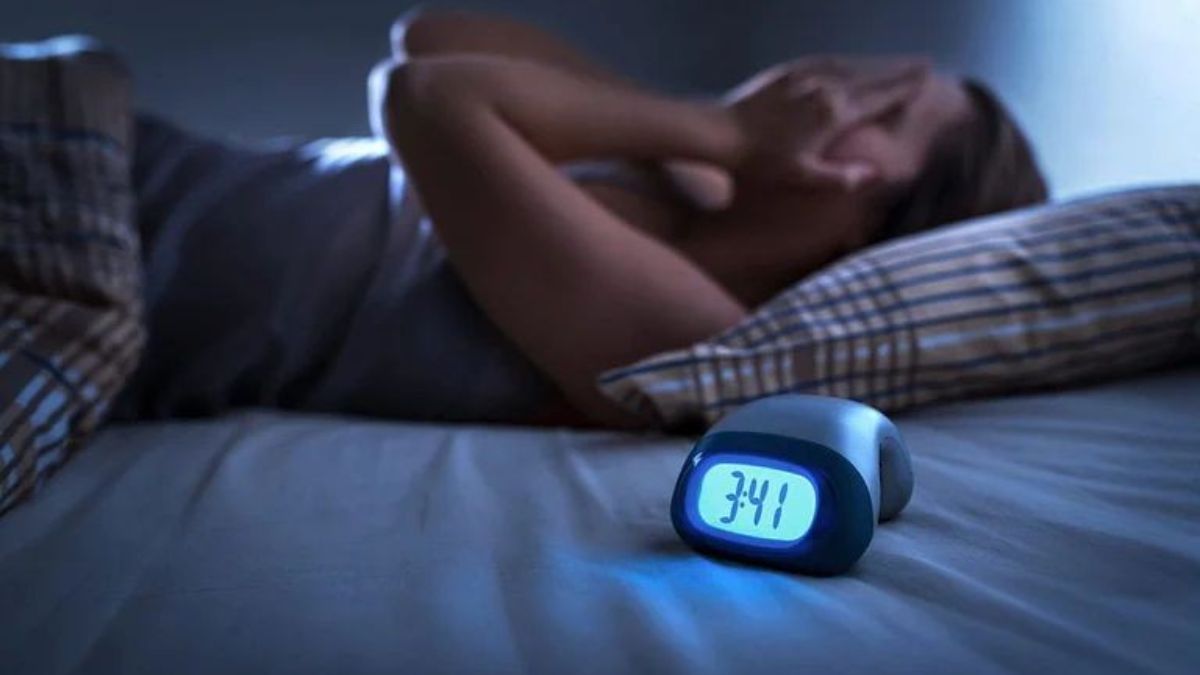Tossing, turning, checking the time & yet no sleep in sight—sounds familiar? If you find yourself wide awake in the middle of the night, you’re not alone.
A concerning new survey by LocalCircles, a citizen engagement platform that conducts surveys and opinion polls on public policy and social issues, shows nearly 59 per cent of Indians get less than six hours of sleep each night. And for many, even that sleep is far from uninterrupted.
From late-night trips to the bathroom to stress and constant disturbances, a restful night has become harder to come by. Ahead of World Sleep Day, let’s take a closer look at why so many Indians are struggling to sleep, and the reasons behind this growing crisis.
India is not sleeping enough
The national survey, which polled over 43,000 people, including 61 per cent men and 39 per cent women from 348 districts, paints a concerning picture of sleep deprivation in the country.
It found that only 39 per cent were able to sleep for six to eight hours, while 39 per cent managed four to six hours, and 20 percent got only four hours. Only 2 per cent of those surveyed answered getting eight to ten hours of sleep, while the remaining 59 per cent get less than six hours.
According to National Medical Journal of India, healthy adults are recommended to get at least 7-8 hours of sleep every night.
“Sleep is as vital to health as diet and exercise, yet millions struggle in silence,” Dr Carlos M Nunez, ResMed’s Chief Medical Officer, who conducted a similar study on a global scale, said.
Why Indians cannot Indians fall asleep? No, it is not your phone
A good night’s sleep isn’t just about putting your phone away before bed. The survey, which was published Saturday, found that frequent night-time disruptions play a major role in keeping Indians from getting uninterrupted rest.
Sleep cycles can vary from person to person and are based on several factors—age, recent sleep patterns, metabolism, dinner timings, screen usage before bed, and even alcohol consumption, the study states. “During healthy sleep, a person progresses through a series of sleep cycles, each of which is made up of distinct sleep stages,” the report states.
Among those struggling with sleep interruptions, a staggering 72 per cent of 14,952 respondents blamed waking up to use the washroom as the main culprit. Poor sleep schedules kept 25 per cent awake, while external noises and mosquitoes disrupted sleep for 22 per cent.
Medical conditions like sleep apnea were responsible for sleep disturbances in 9 per cent of respondents, while another 9 per cent cited partner or child-related interruptions. Surprisingly, only 6 per cent reported mobile calls or messages as a cause of disrupted sleep.
Also read: You shouldn’t sleep with your cell phone at night. Here’s why
Sachin Taparia, founder of LocalCircles, explained to The New Indian Express, “For many Indians, dinner happens late, post 9 pm due to late working hours, long commute, etc, and the morning routine starts early for various reasons, thus shortening their available sleep window. If sleep quantity and quality have to improve, this has to change.”
The survey also revealed the real-world consequences of sleep deprivation—47 per cent of employed Indians admitted to taking sick leave at least once due to lack of sleep. Additionally, 37 per cent reported working night shifts starting after 9 pm, further disturbing their natural sleep cycles.
Women, in particular, seemed to suffer more. The study found that, on average, women reported fewer nights of good sleep per week compared to men, largely due to hormonal changes affecting their sleep patterns.
Insufficient sleep is linked to various health problems
Missing out on sleep does more than just leave you with dark circles and sluggish mornings—it can have lasting effects on your health. Experts warn that chronic sleep deprivation is linked to serious conditions like cardiovascular diseases, obesity, and metabolic disorders such as Type 2 diabetes.
While most of us know the health risks, we tend to rely on quick fixes. According to the findings, 36 per cent of respondents take Sunday afternoon naps, 23 per cent try to sleep in on weekends, and 13 per cent extend their sleep on holidays. However, these short-term solutions don’t fully compensate for consistent sleep loss.
The survey highlights, “Potential effects on the brain and body indicate that healthy sleep requires avoiding disruptions that inhibit sleep continuity.”
“Disorders like restless leg syndrome and bruxism are known to disrupt sleep. Other conditions, including nocturia, cardiovascular issues, as well as hormonal, lung and neurological problems may threaten sleep continuity,” the report said, adding that certain prescription drugs can have sleep-related side effects.
Also read: Sleepless in Summer: How India’s rising night-time temperatures are a health concern
10 ways to get a good night’s sleep
Alongside the survey, the research agency shared some essential habits that can help improve sleep quality. Here are ten simple yet effective ways to get a good night’s sleep:
1. Stick to a consistent daily routine.
2. Cut down on caffeine, especially in the evening.
3. Turn off screens—TVs, computers, and phones—before bedtime.
4. Avoid going to bed on a full stomach.
5. Don’t go to bed hungry either—have a light, healthy snack if needed.
6. Exercise regularly, but not too close to bedtime.
7. Limit beverages before bed to reduce night-time bathroom trips.
8. Keep your bedroom dark and quiet for an ideal sleep environment.
9. Invest in a comfortable mattress, pillows, and bedding.
10. Train your body to sleep and wake up naturally, without relying on alarms.
With input from agencies


)

)
)
)
)
)
)
)
)



